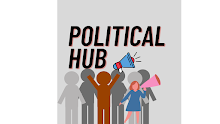‘Boys Will Be Boys’: Karoline Leavitt Responds To Musk's Criticisms Of Navarro Amidst Rising Tariff Tension
 |
| Photo credit: Gage Skidmore/CC BY-SA 2.0, via Flickr |
‘Boys Will Be Boys’: Karoline Leavitt Shrugs Off Elon Musk’s Criticism of Peter Navarro Amid Tariff Debate
WASHINGTON, D.C. — Amid growing tensions over the Biden administration’s evolving tariff strategy, a fiery exchange erupted between billionaire entrepreneur Elon Musk and White House Trade Advisor Peter Navarro, prompting questions during Tuesday’s White House press briefing.
When asked about Musk publicly calling Navarro “dumber than a sack of bricks” over the administration’s handling of tariffs, Press Secretary Karoline Leavitt dismissed the feud with a light-hearted quip:
“Boys will be boys, and we’ll let their public sparring continue,” Leavitt said, drawing a few chuckles from the press corps.
Elon Musk vs. Peter Navarro: A Clash Over Tariff Policy
The clash stems from Elon Musk's increasing dissatisfaction with the White House’s trade stance, particularly its proposed tariffs on electric vehicles and international manufacturing components. Musk, CEO of Tesla and SpaceX, has long advocated for free-market principles, warning that excessive tariffs could hurt American innovation and global competitiveness.
On the other hand, Peter Navarro, a staunch economic nationalist and trade hawk, has been one of the administration’s strongest voices supporting tariffs, especially against China and the EU, citing the need to protect domestic industries and reduce the trade deficit.
Their differing philosophies have now spilled into the public arena, escalating tensions within policy circles.
White House Stays the Course Despite Dispute
Karoline Leavitt, while acknowledging the heated rhetoric, emphasized that internal disagreement reflects the administration’s commitment to transparency and robust policy debate.
“You should all be very grateful that we have the most transparent administration in history,” Leavitt stated. “It speaks to the president’s willingness to hear from all sides… He takes all opinions into account and makes the best decision for the American people.”
Leavitt did not confirm whether the President has directly addressed the Musk-Navarro spat, but made it clear that public feuds would not influence the administration’s overall trade policy.
Tariffs Remain a Key Economic Flashpoint
The Biden administration’s tariff policy — particularly proposals aimed at countering foreign subsidies and promoting “Made in America” manufacturing — continues to be a point of contention among industry leaders, economists, and political figures.
Musk has previously criticized tariffs as "inefficient and harmful to consumers," while Navarro views them as vital tools for economic security and industrial revival.
Despite the controversy, the White House appears determined to stay the course as it navigates rising inflation, global supply chain concerns, and political pressures heading into the 2026 election cycle.
Conclusion
As public sparring continues between prominent voices like Elon Musk and Peter Navarro, the Biden administration is walking a tightrope between economic pragmatism and political strategy. While Karoline Leavitt downplays the drama, the exchange highlights the deep divisions over trade policy — even within the nation's top economic minds.
FAQs
Q: What did Elon Musk say about Peter Navarro?
A: Elon Musk publicly called Trade Advisor Peter Navarro “dumber than a sack of bricks” over disagreements on the administration’s tariff strategy.
Q: How did Karoline Leavitt respond?
A: White House Press Secretary Karoline Leavitt dismissed the spat by saying, “Boys will be boys,” and emphasized the administration's openness to diverse opinions.
Q: What are the tariffs in question?
A: The tariffs involve proposed duties on imported goods, particularly electric vehicles and tech components, aimed at countering foreign economic advantages.
Q: Is the President concerned about the feud?
A: According to Leavitt, the President welcomes diverse viewpoints and is not alarmed by internal disagreements.
Q: What’s the broader significance of this clash?
A: It reflects the tensions between free-market advocates and protectionist policymakers as the U.S. redefines its global trade posture.

Comments
Post a Comment
If You have any doubt, please let me know.